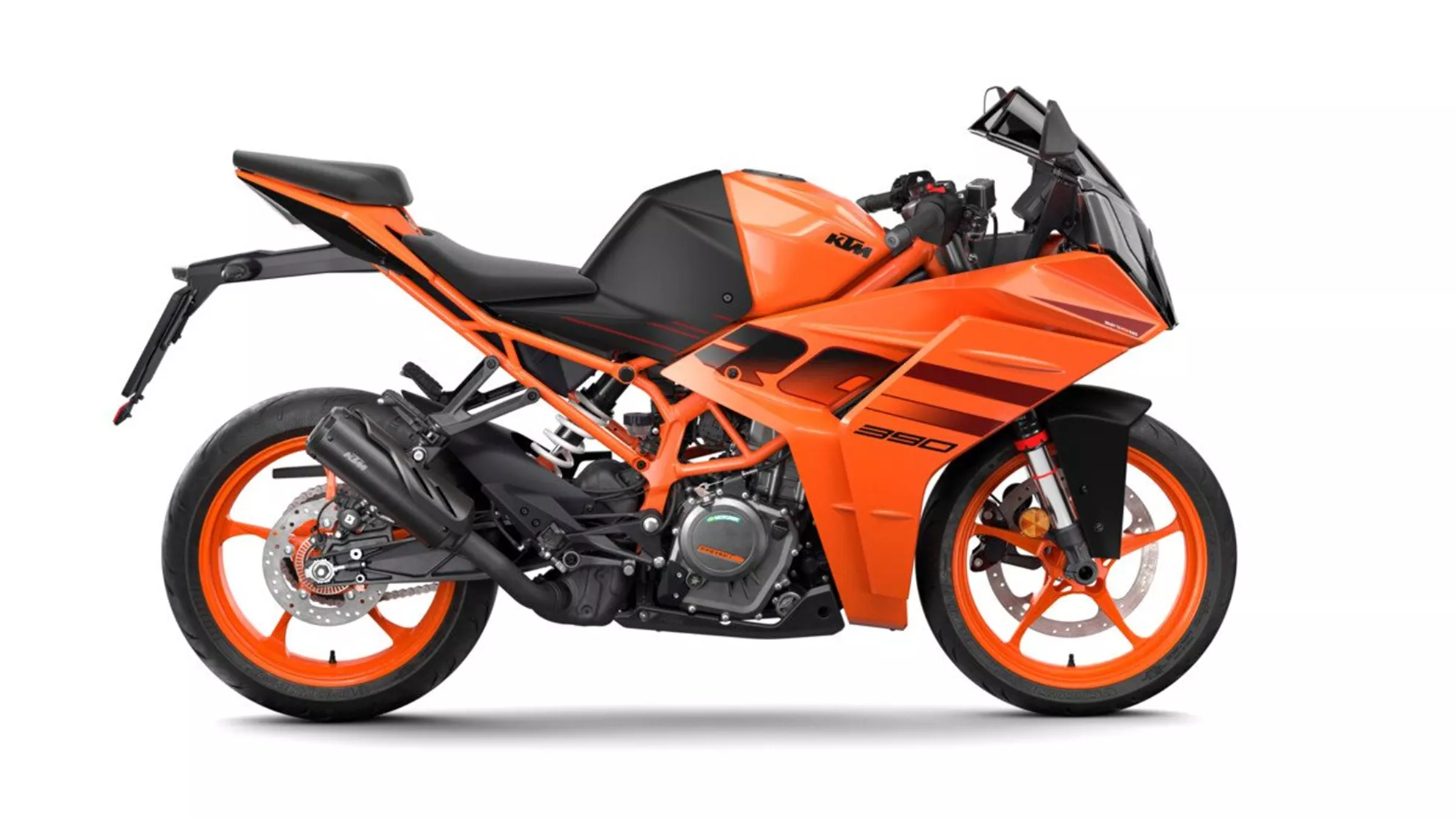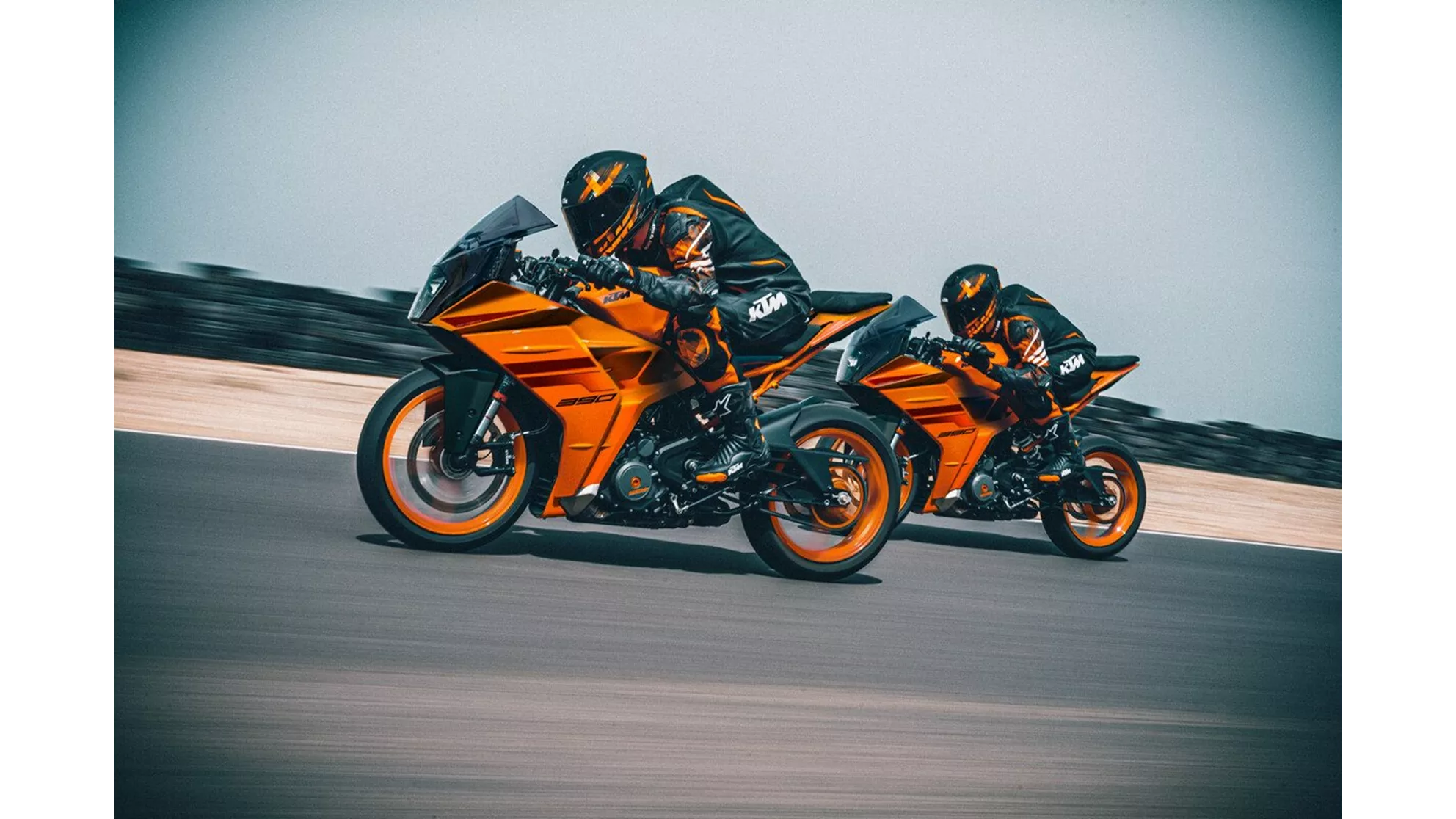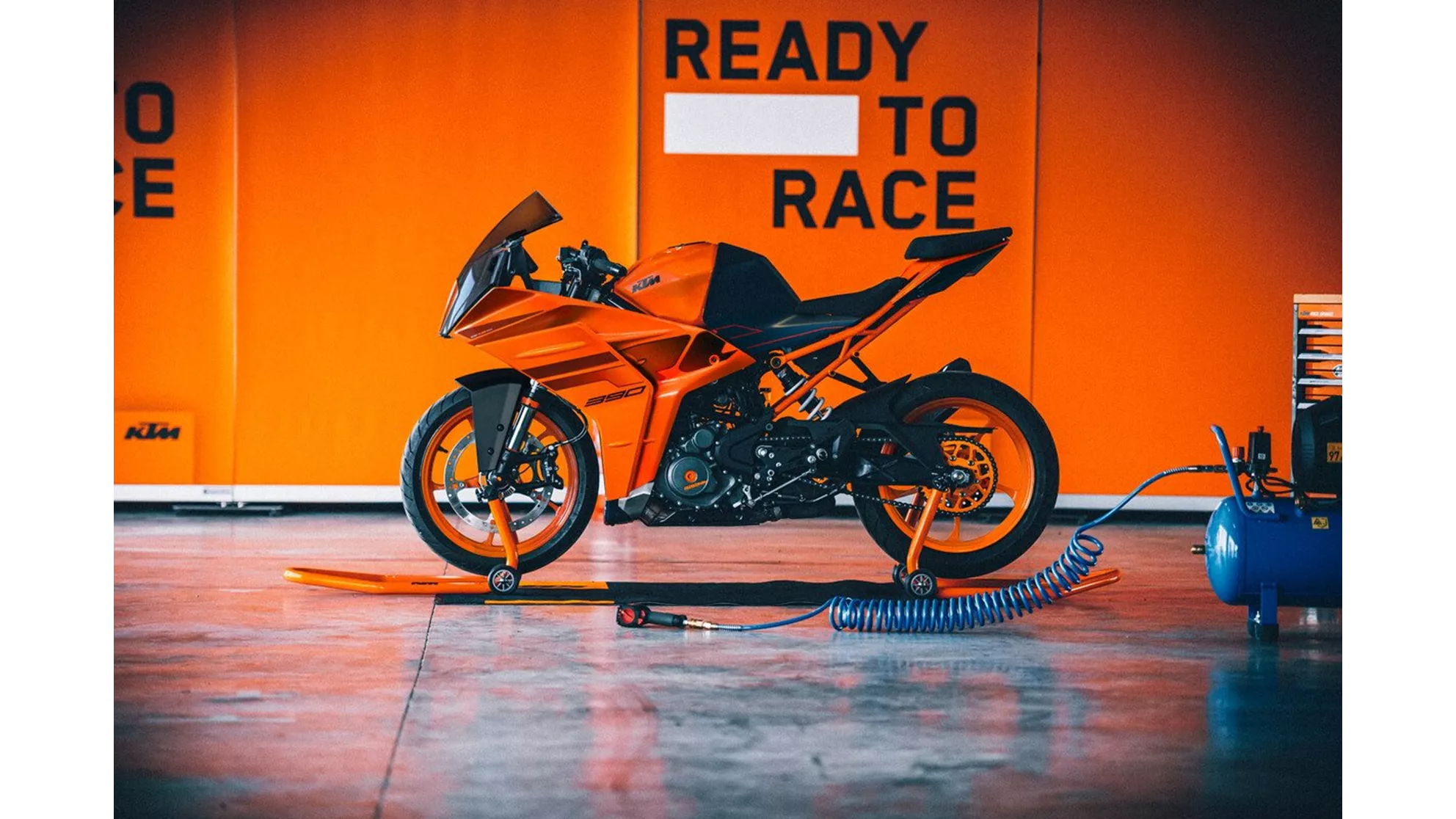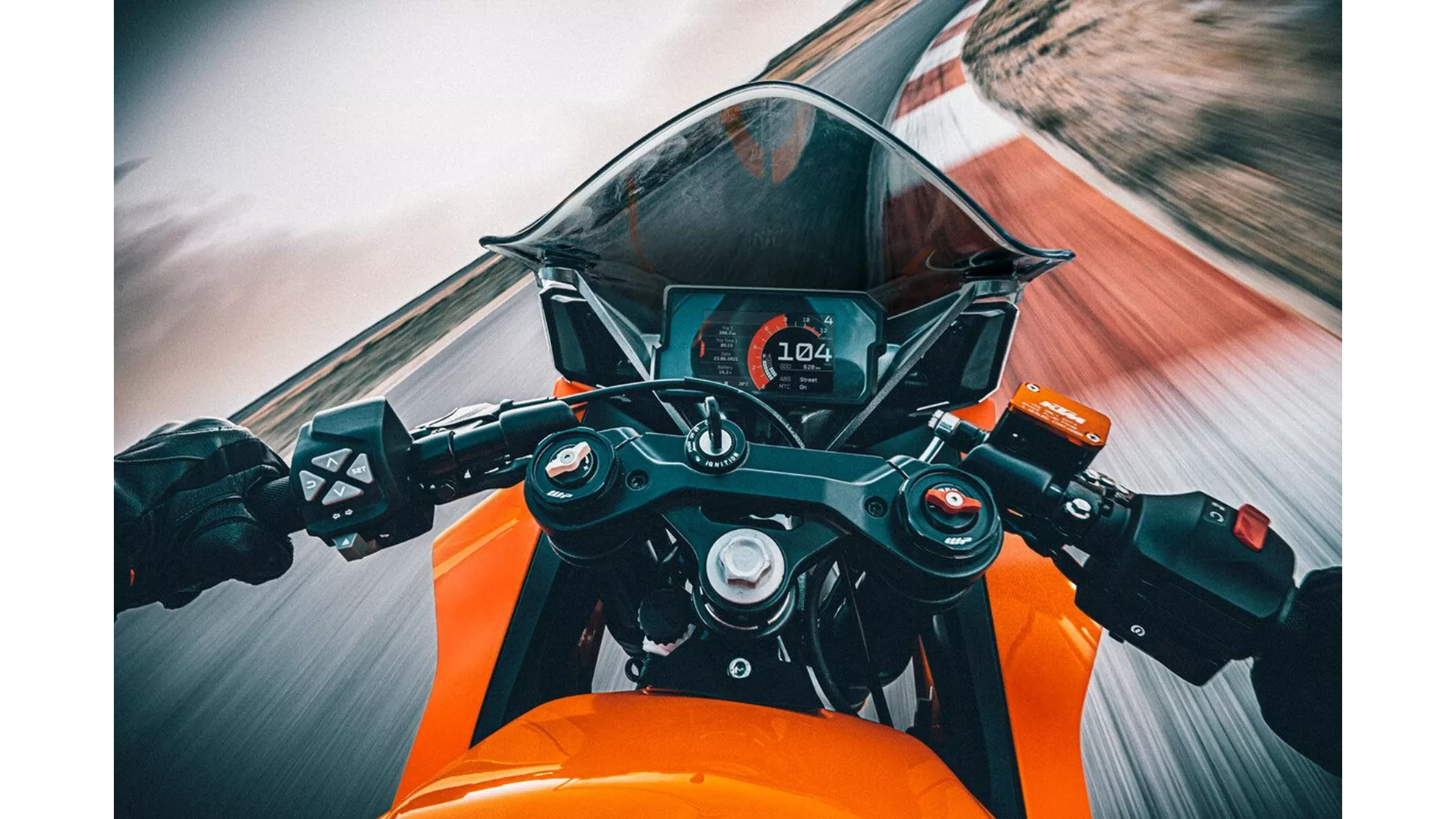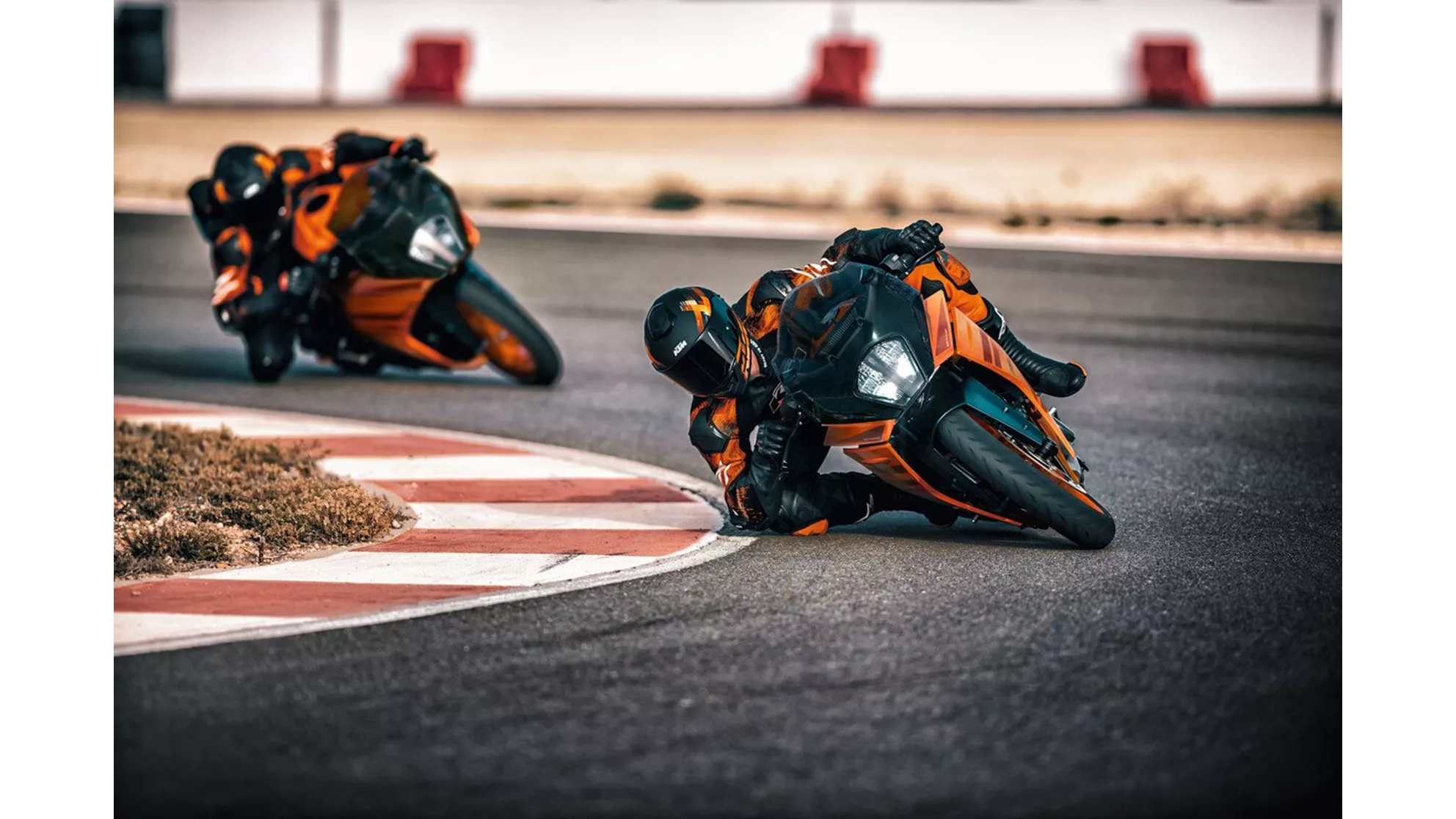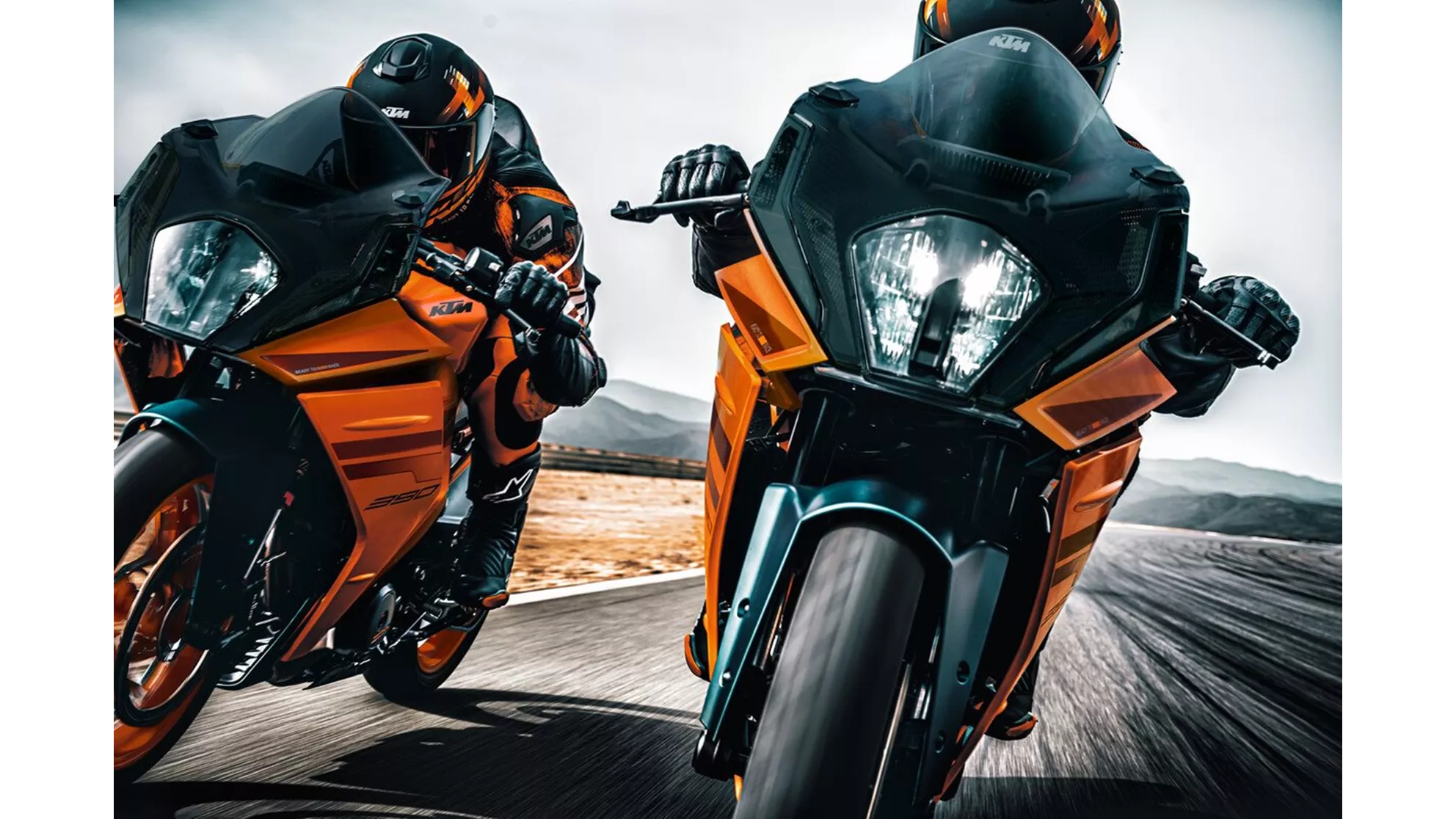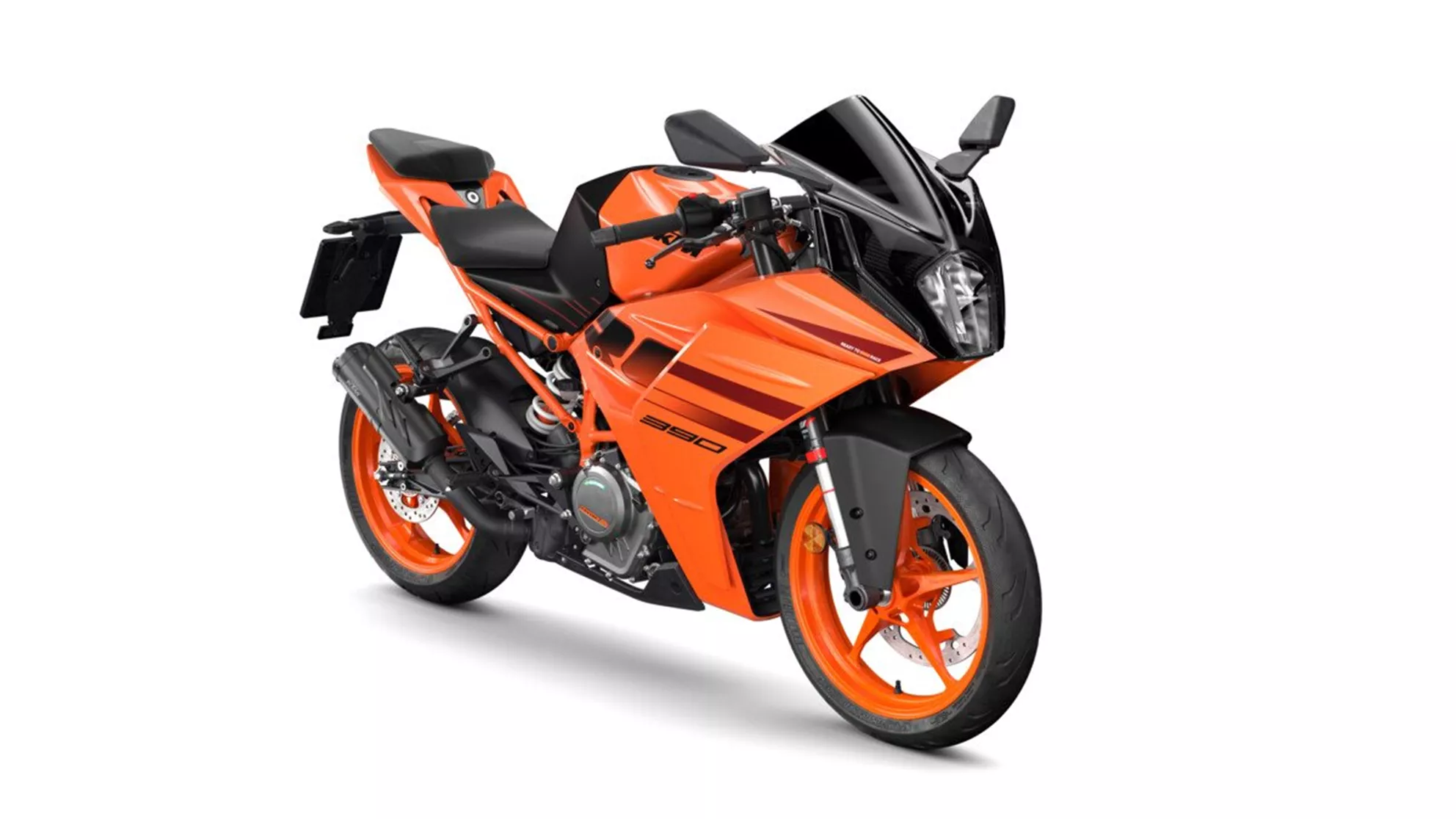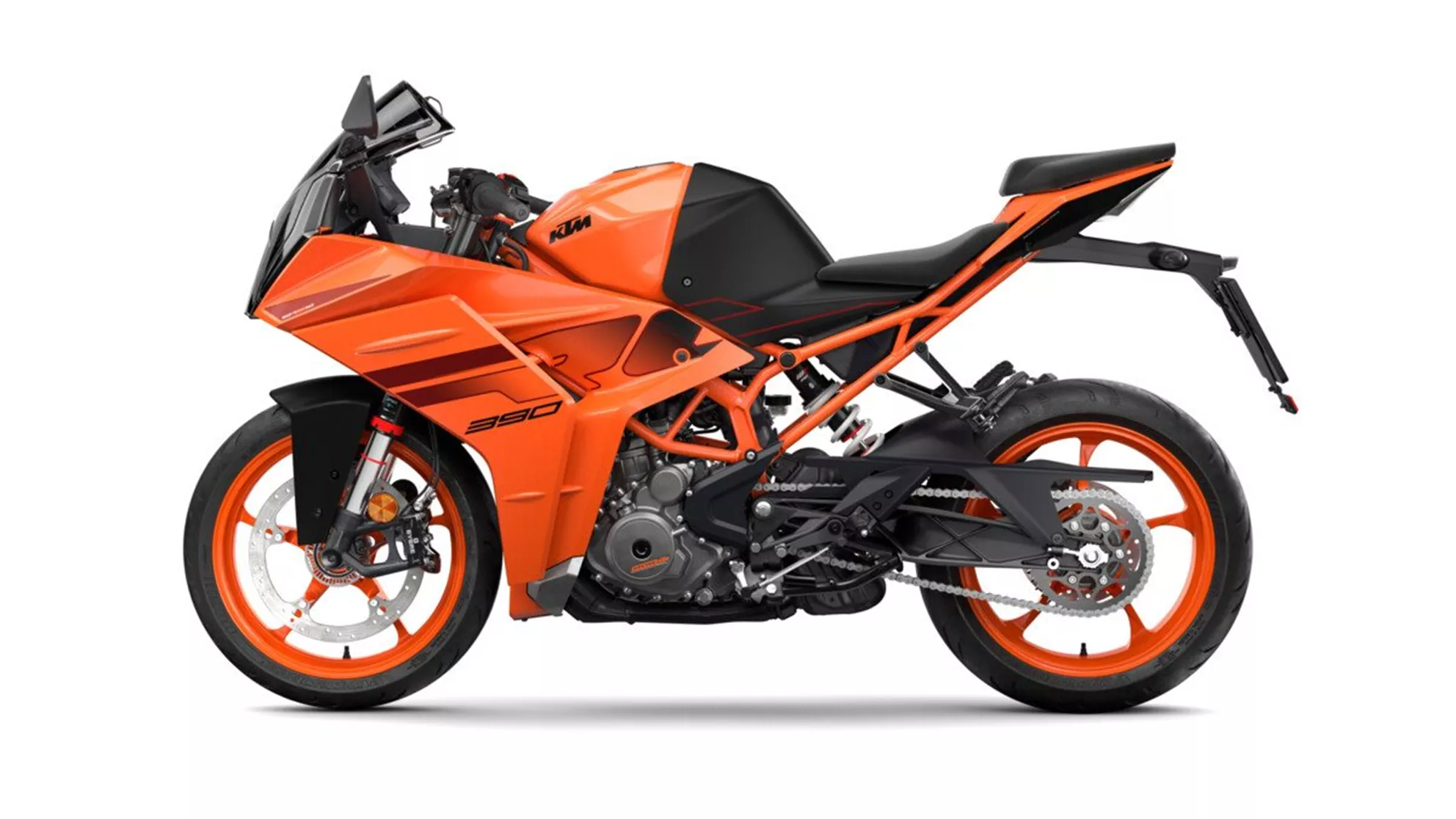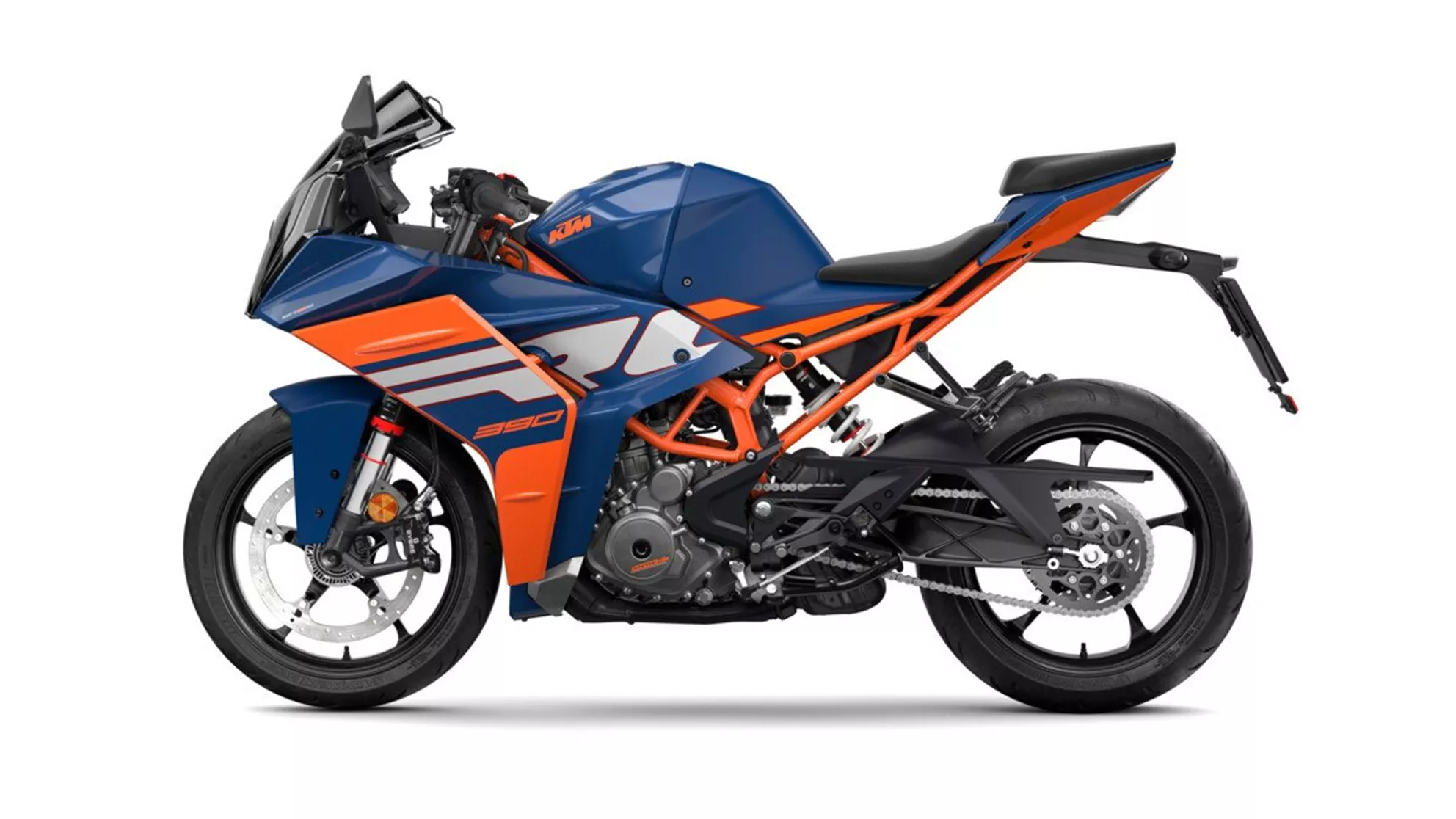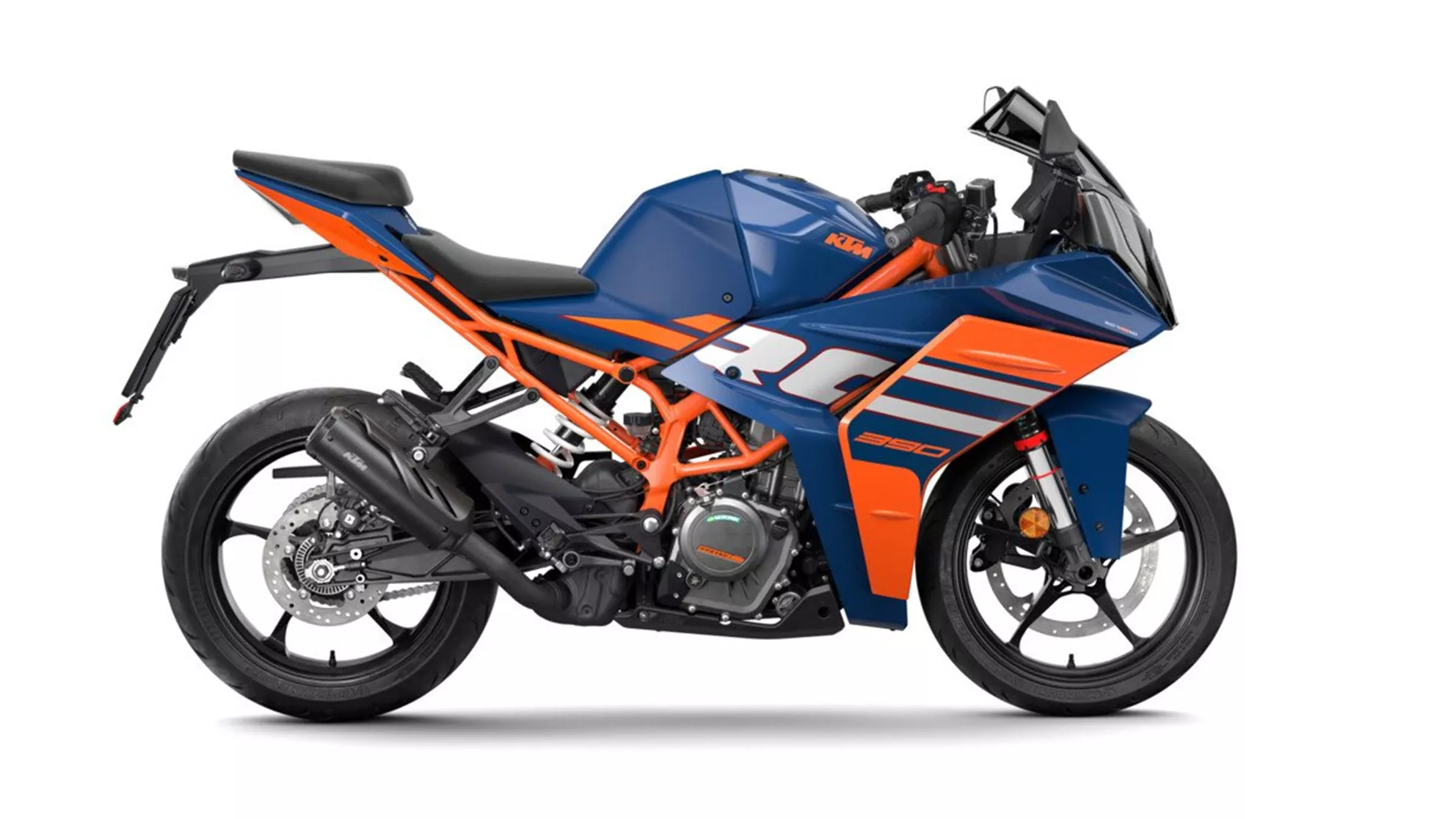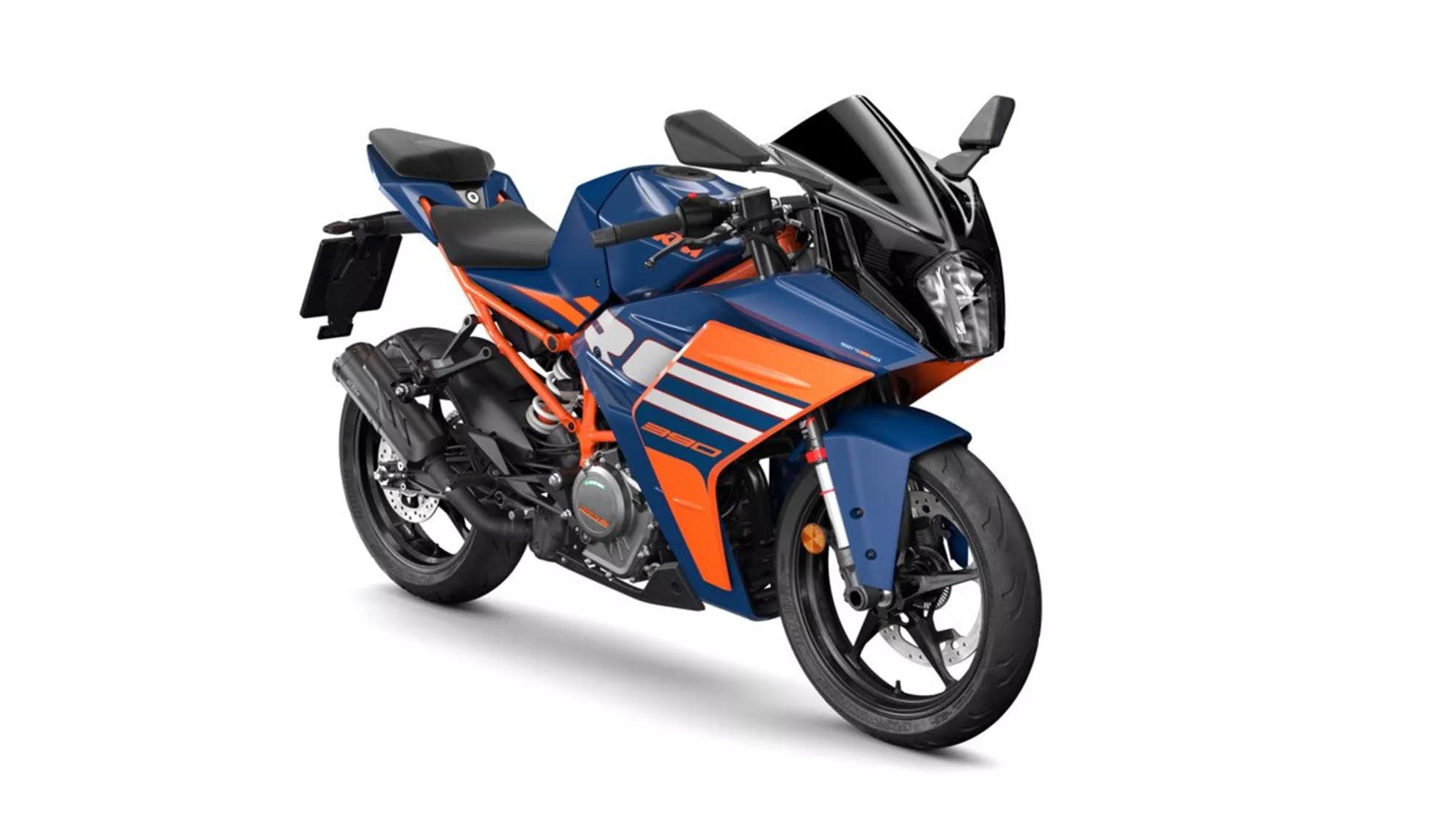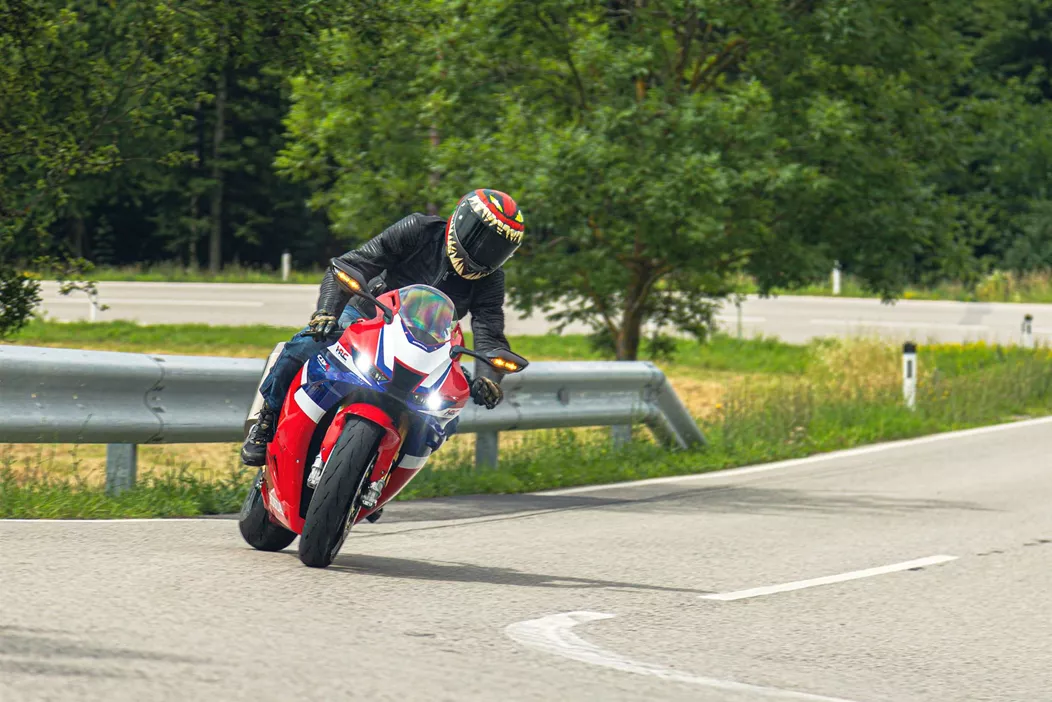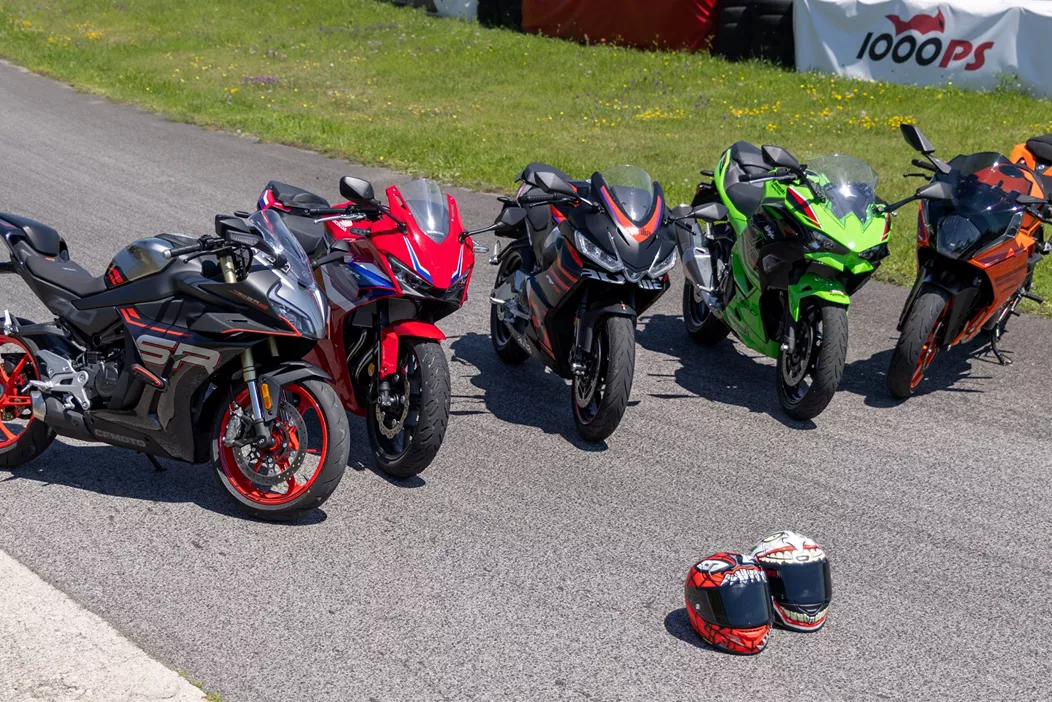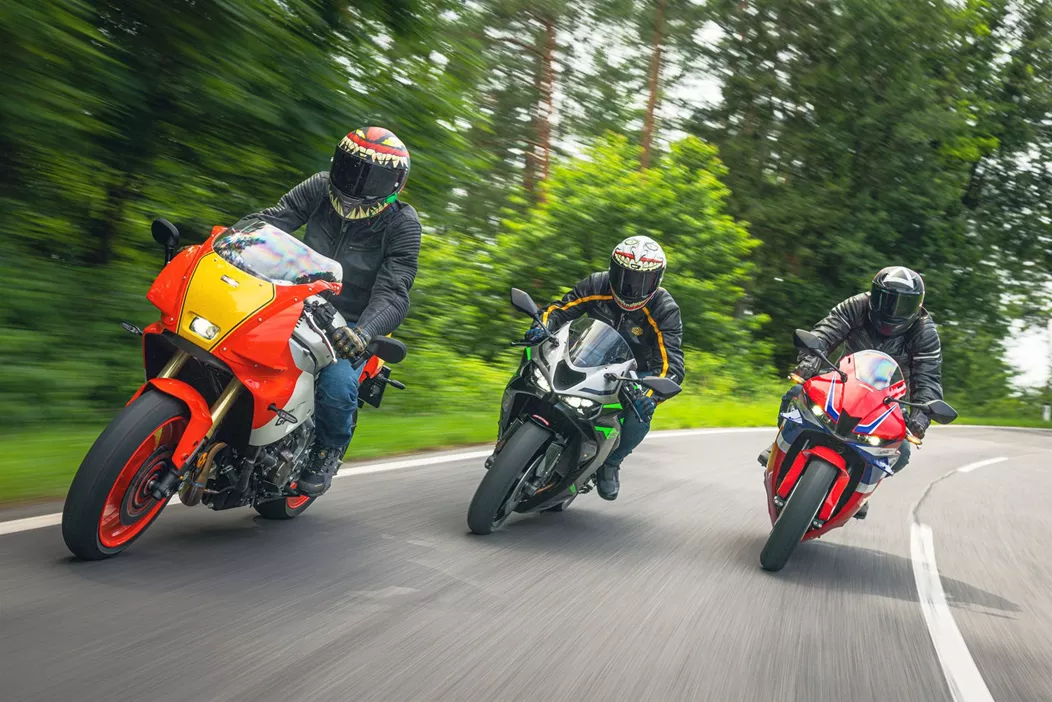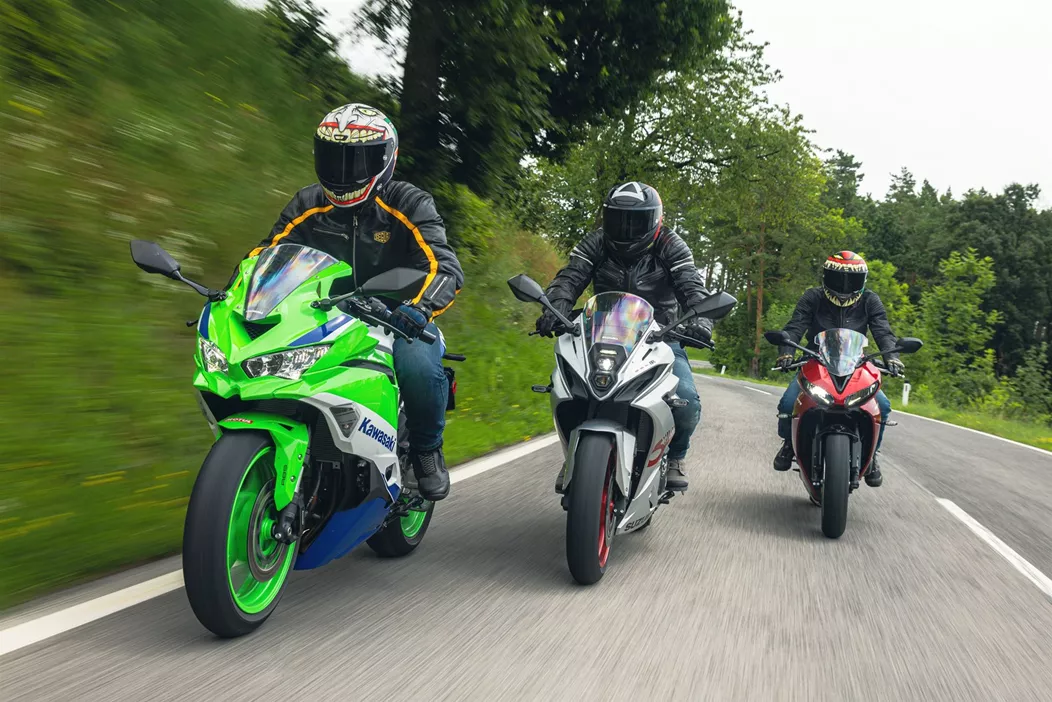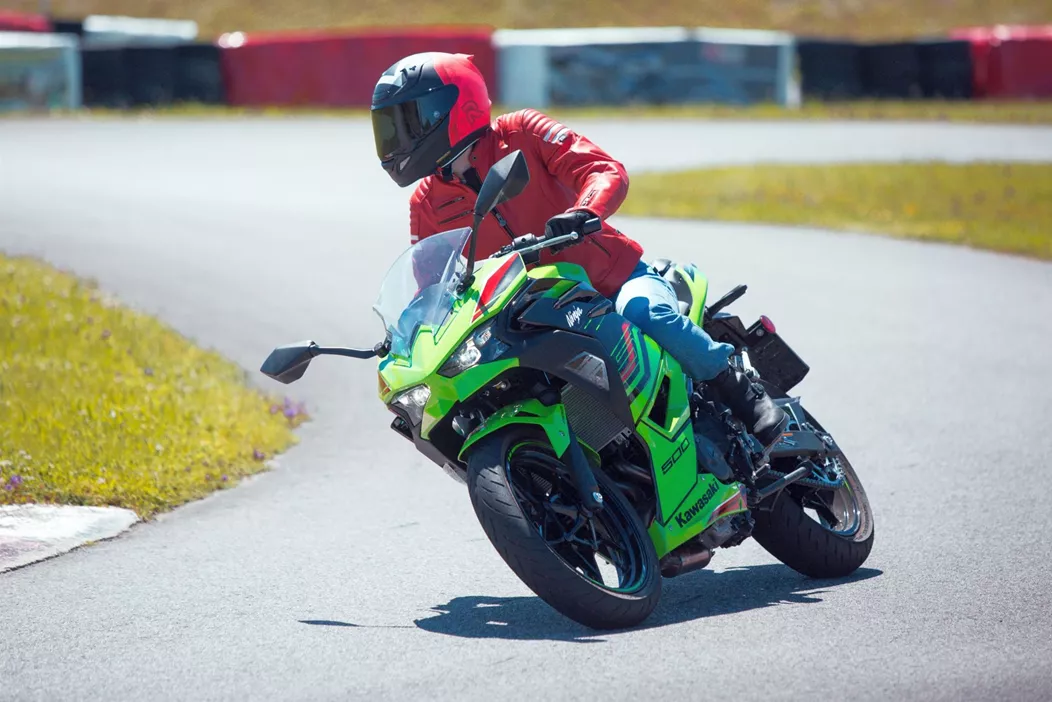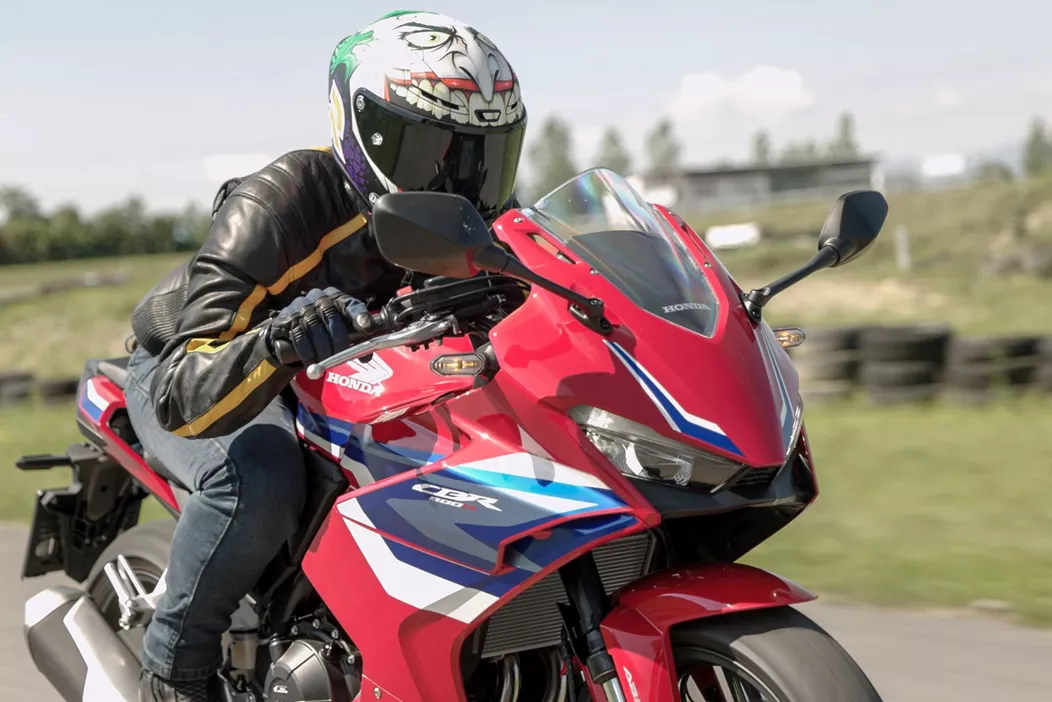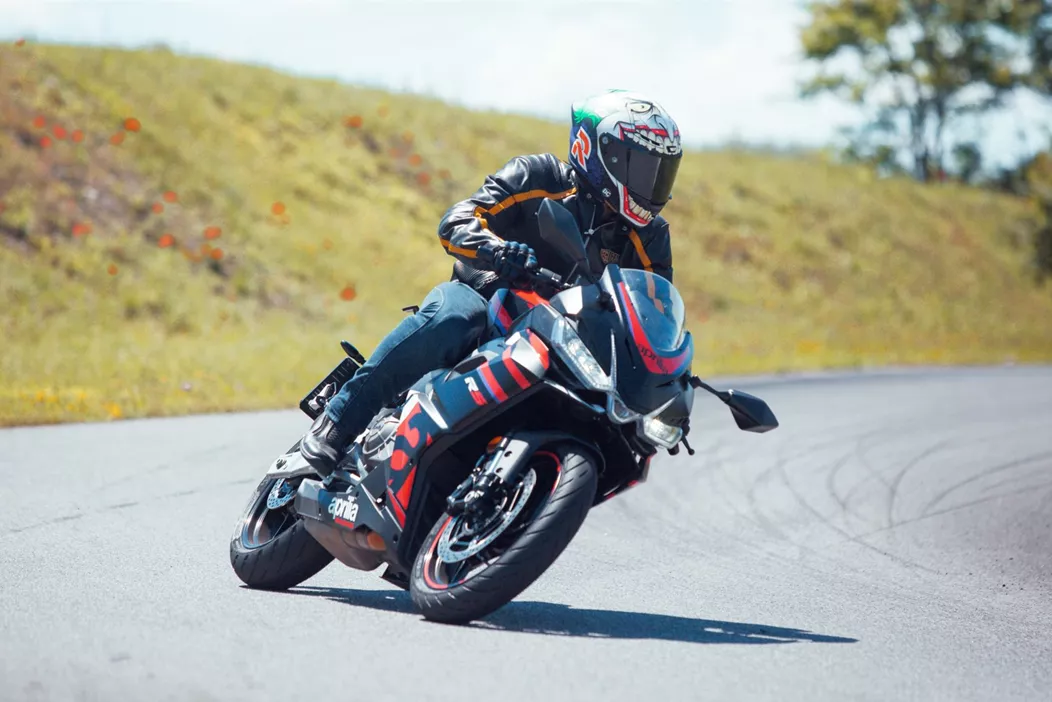The KTM RC 390 is a compact supersport bike featuring a 373.2 cc single-cylinder engine that delivers 44 hp at 9000 rpm and 37 Nm of torque at 7000 rpm. Weighing just 164 kg, with a fully adjustable chassis and a seat height of 824 mm, it offers an excellent balance of performance and handling. Equipped with cutting-edge technology such as cornering ABS, traction control, and a TFT display, the RC 390 is ideal for riders who value dynamic riding performance and safety in equal measure.
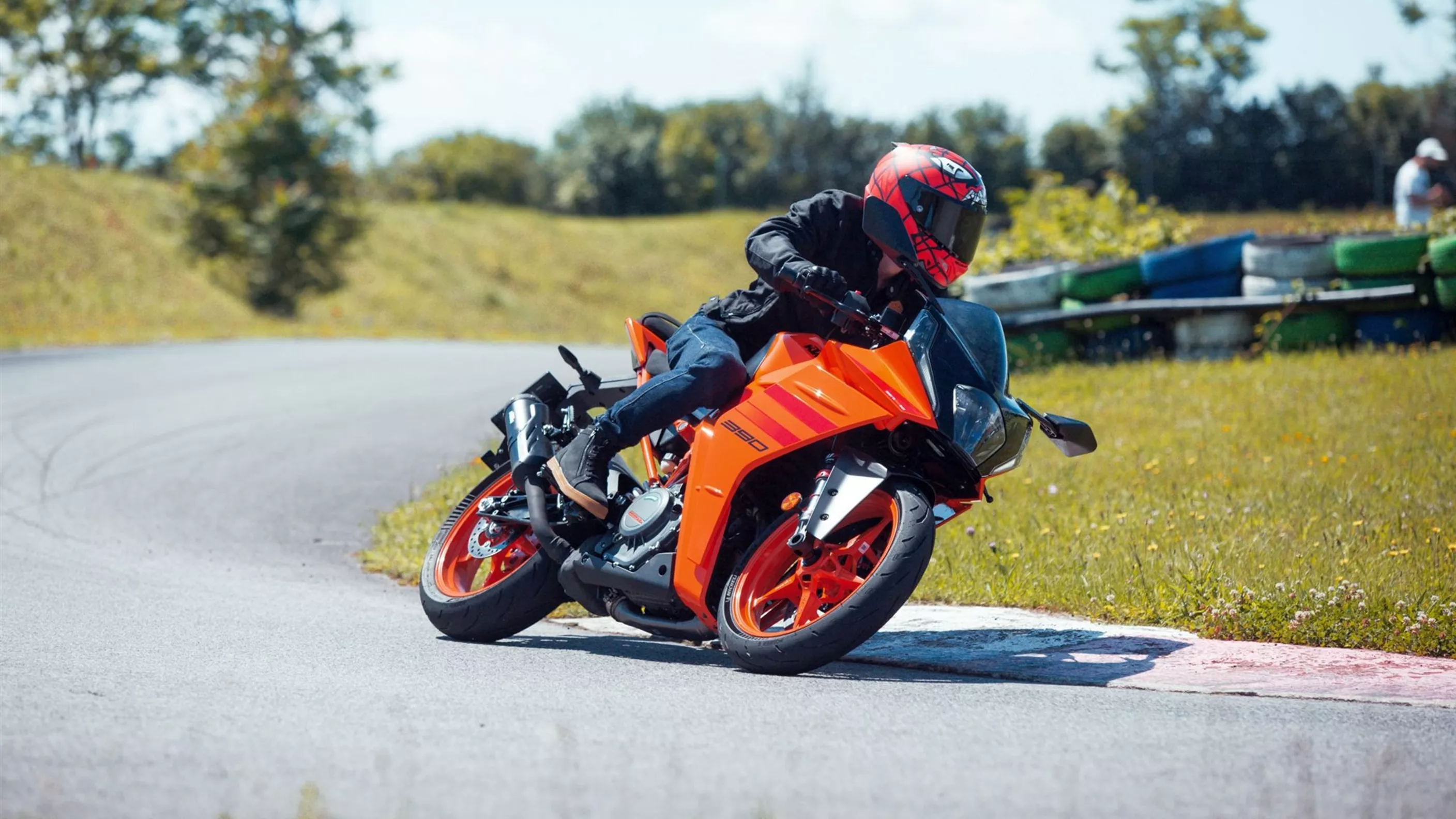
KTM RC 390 Test 2024 on the Supermoto track
How comfortable does the Austrian woman feel on the compact track?
The KTM RC 390 combines sporty performance with nimble riding behavior, making it attractive for both beginners and experienced riders. Our testers Martin Bauer, Amelie, Alessio, and Horvath have thoroughly tested this bike on country roads and the supermoto track.
&width=72&height=72&bgcolor=rgba_39_42_44_0&mode=crop)
Der Horvath
published on 06/08/2024
The KTM RC 390 2024
KTM RC 390 2024 - Key Facts
Engine and Drive Train
| Bore | 89 mm |
|---|---|
| Stroke | 60 mm |
| Engine power | 44 HP |
| Rpm at Max. Power | 9000 rpm |
| Torque | 37 Nm |
| Rpm at Torque | 7000 rpm |
| Compression Ratio | 12.6 |
| Starter | Electric |
| Clutch Type | Multiplate in oil-bath |
| Transmission Type | Gearshift |
| Valves | DOHC |
| Displacement | 373.2 ccm |
Suspension Front
| Diameter | 43 mm |
|---|---|
| Travel | 120 mm |
| Adjustment | Compression, Rebound |
Suspension Rear
| Shock absorber | Monoshock |
|---|---|
| Travel | 150 mm |
| Adjustment | Compression, Preload |
Chassis
| Frame type | Tubular |
|---|---|
| Rake | 66.5 degree |
| Trail | 84 mm |
Brakes Front
| Diameter | 320 mm |
|---|---|
| Technology | radial |
Brakes Rear
| Diameter | 230 mm |
|---|
Assistance Systems
| Advanced Rider Assistance Systems | Cornering ABS, Cruise control, Traction control |
|---|
Dimensions and Weights
| Front tyre width | 110 mm |
|---|---|
| Front tyre height | 70 % |
| Front tyre diameter | 17 inch |
| Rear tyre width | 150 mm |
| Rear tyre height | 60 % |
| Rear tyre diameter | 17 inch |
| Wheelbase | 1343 mm |
| Seat Height | 824 mm |
| Kerb Weight (with ABS) | 164 kg |
| Fuel Tank Capacity | 13.7 l |
| License compliancy | A2 |
| Range | 395 km |
| Combined CO2 emissions | 81 g/km |
| Combined fuel consumption | 3.46 l/100km |
Equipment
| Equipment | LED-Headlights, TFT display |
|---|
The Helmets of the 1000PS Supersports Test
The HJC helmets in superhero design, worn by our editors for the Supersport motorcycle test, are not only a real eye-catcher but also technically advanced. The RPHA 1 and RPHA 12 models offer a perfect combination of safety, comfort, and stylish design. The RPHA 1 is particularly designed for aerodynamics and stability at high speeds, providing excellent protection through its premium materials. The RPHA 12, on the other hand, impresses with its versatile range of use and excellent ventilation, ensuring a pleasant freshness even on longer rides. Both helmets are adorned with striking superhero graphics, making them a special highlight for all comic fans and motorcycle enthusiasts.
For more information, visit: HJC Helmets.
The Gear for the 1000PS Supersports Test 2024
Our editors not only wore the striking HJC helmets during this supersports bike test but were also dressed in high-quality motorcycle gear from Segura. Segura is renowned for its blend of classic design and top-notch protection. The tested outfits included sturdy leather jackets that ensure maximum safety with their abrasion-resistant properties and integrated protectors at the shoulders, elbows, and back. Additionally, they wore breathable and weatherproof pants and gloves that offer optimal grip and protection. Segura's motorcycle gear combines stylish looks with functional details, ensuring our editors were not only well-protected but also comfortable and fashionable on the go.
For more information, visit: Segura Motorcycle Gear.
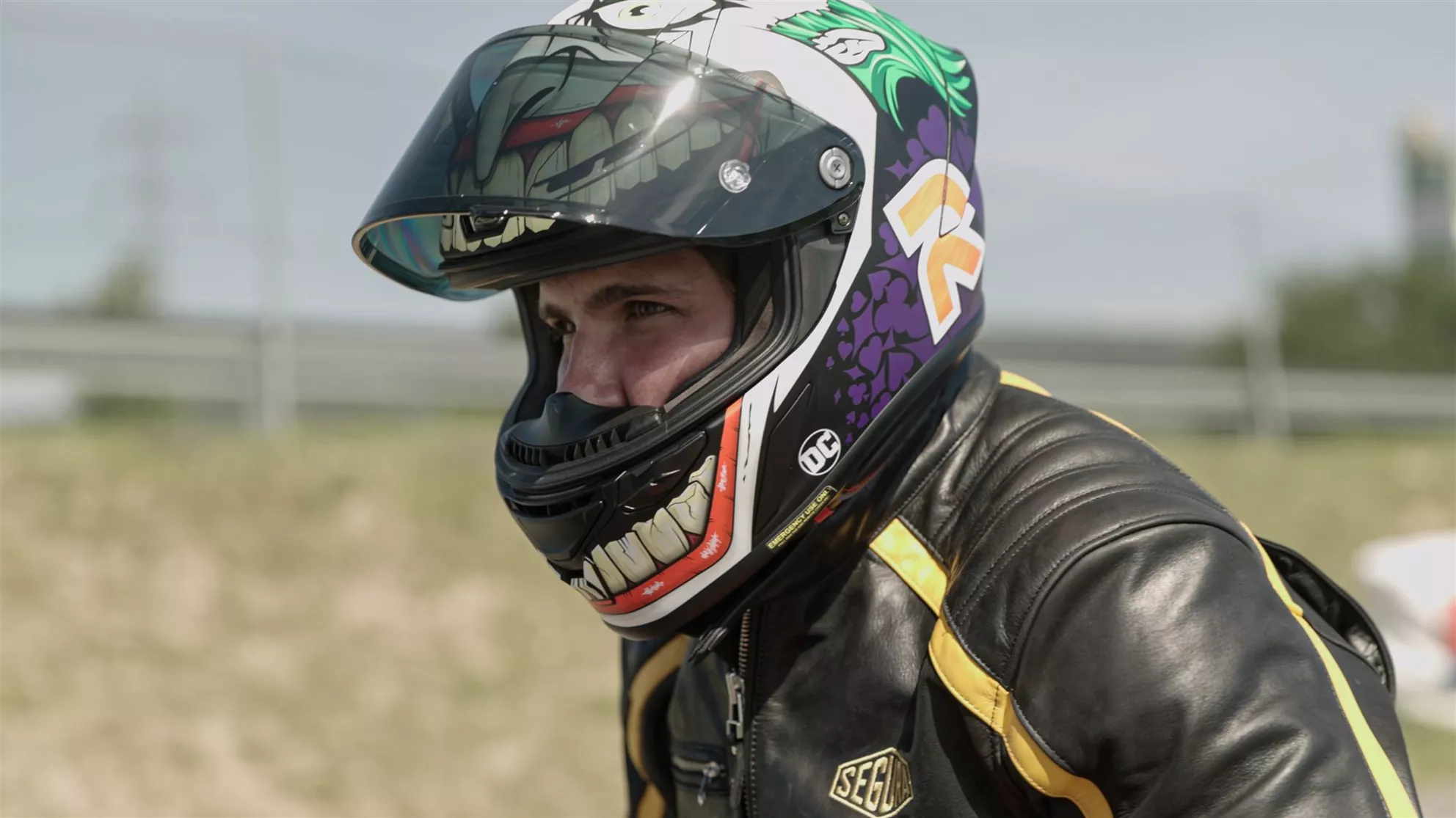
Style and safety combined with HJC and Segura.
Martin Bauer on the KTM RC 390
The KTM RC390 is a sports bike with a single-cylinder engine that exhibits rather unusual power delivery for this type of engine. While single-cylinder engines typically deliver a lot of power at low RPMs, the RC390 needs about 6000 revolutions per minute to reach its optimal power band. On the plus side, the engine's smooth running without significant vibrations is advantageous for daily street use. Another positive aspect is the extensive electronic equipment, which is remarkable for a bike in this displacement class.
The seating position is supermoto-oriented, which promotes agile riding performance. The wide handlebar allows for easy and precise control of the bike. The chassis offers both comfort and sufficient damping to avoid uncontrolled movements. Another highlight of the RC390 is the option to use a quickshifter and blipper function. The gear ratios are chosen to be short, making riding shift-intensive, but this is well compensated by the mentioned additional features.
Horvath on the RC 390
The KTM RC 390 presents itself on paper as the sportiest bike in its segment. Its fully adjustable chassis and the lowest weight are clear advantages. However, the engine shows weaknesses in performance. Especially the torque is mediocre: In the lower rev range, it takes some time to get going, it convinces in the middle, but in high revs, the performance drops off. The quickshifter works reliably, and the operation of the display and menu navigation are adequate. Particularly noteworthy is the sporty ergonomics of the RC 390, which also means that comfort suffers. This setup is aimed at riders looking for a very agile and nimble machine and are willing to sacrifice comfort for sportiness.
Alessio on the KTM RC 390
The KTM RC 390 impresses with its radical seating position, which is sportier than that of its competitors. This is immediately noticeable when you take a seat on the bike, as the handlebars are positioned significantly lower. The 390 cc single-cylinder engine is slightly restricted due to stricter emission standards, which can affect power delivery. The seat is comfortable, and the modern display as well as the well-functioning brakes contribute to the positive overall experience. Particularly noteworthy is the extensive electronics package, which includes the Supermoto ABS. Overall, the RC 390 leaves an excellent first impression, especially due to its sporty ergonomics and comprehensive electronics.
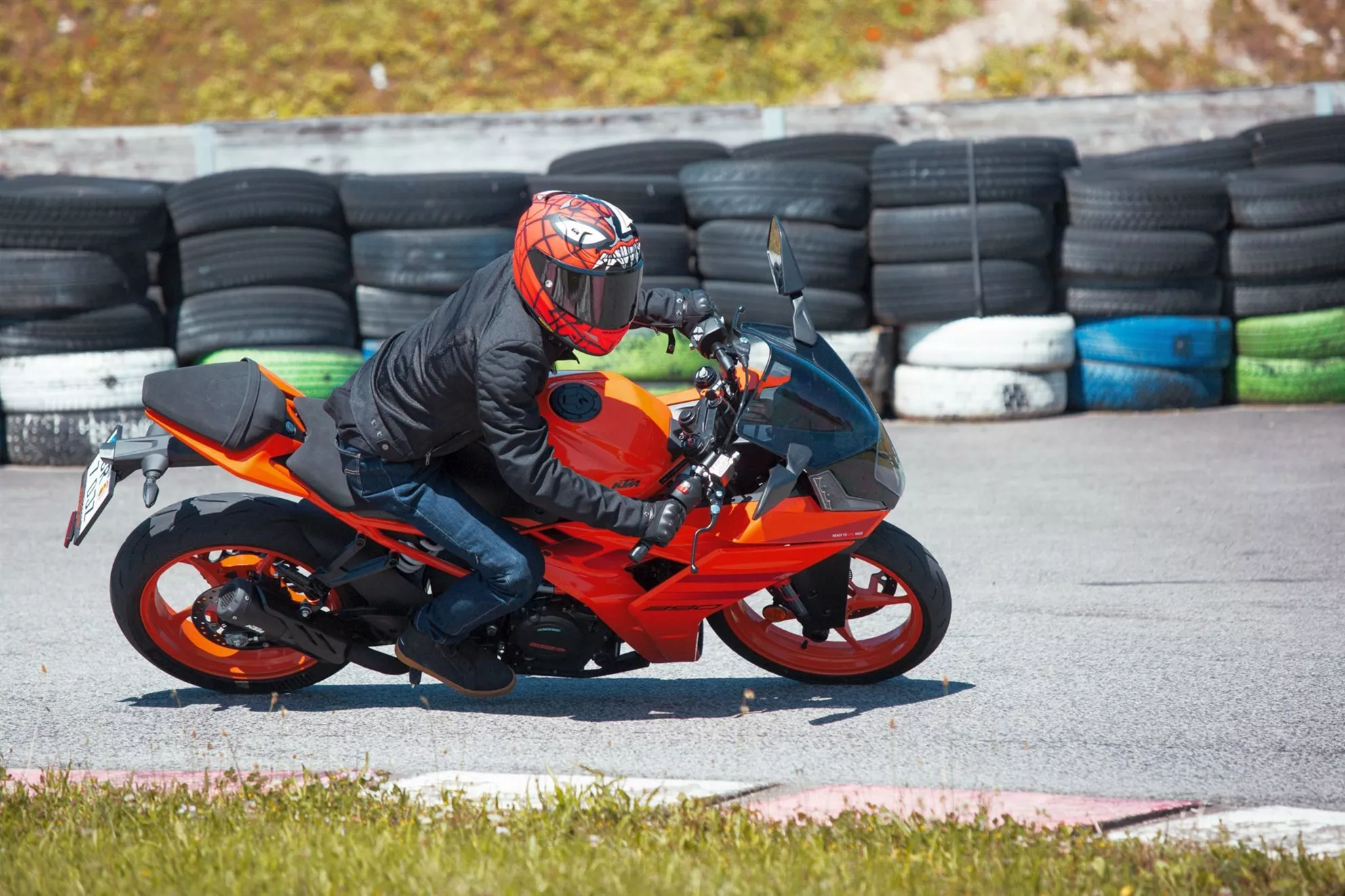
The RC 390 leaves a positive impression in the A2 segment.
Amelie on the RC 390
At first, I found it difficult to warm up to the KTM RC 390. The seating position felt uncomfortable, possibly due to the aggressive stance and forward weight distribution. This front-heavy nature required an adjustment period. However, after a few laps, I began to appreciate the bike's advantages. Although I initially criticized the precision, it turned out that the handling was quite easy due to the compact size and low weight. The brakes initially seemed too aggressive and hard to modulate, but again, I think it's a matter of getting used to them. Overall, the KTM RC 390 left a solid impression, even if it doesn't rank among my favorites.
Conclusion: Positive Experiences with the KTM RC 390
The positive experiences with the KTM RC 390 can be summarized as follows:
Chassis and Handling: The fully adjustable chassis allows for precise adjustments to various riding conditions. The lightweight and compact size make handling easy and nimble.
Electronics and Safety Features: The electronic package is extensive and includes functional riding aids such as traction control and ABS. The Supermoto ABS is particularly highlighted, as it brings a lot of fun on supermoto tracks.
Ergonomics and Seating Position: The sporty seating position is perceived positively by some riders, as it supports agile and nimble riding performance.
Engine and Transmission: The quickshifter and blipper function make shifting easier and contribute to a pleasant riding experience. The gear ratios are well-matched.
Negative Experiences with the KTM RC 390
Engine Performance: The single-cylinder engine shows weaknesses in power delivery, especially in the lower RPM range. It lacks "punch" and full power is only achieved at higher RPMs.
Seating Position and Ergonomics: The seating position is described as aggressive and front-heavy, which may not appeal to every rider. The bike is less comfortable compared to other models in the same segment, particularly noticeable on longer rides.
Brakes: The brakes are sometimes perceived as too aggressive and hard to modulate. The modulation of braking force is rated as average.
The 1000PS Supersports Test
- How much does a KTM RC 390 cost?
- Here you will find an overview of the price level of new and used motorbikes!
&width=60&height=60&bgcolor=rgba_39_42_44_0&mode=crop)
KTM RC 390 2024 - Experiences and Expert Review
Der Horvath
The KTM RC 390 presents itself as a sporty and dynamic bike, particularly suitable for riders seeking an agile and nimble machine. Its fully adjustable chassis and low weight ensure precise and easy handling, while the extensive electronics package, including the innovative Supermoto ABS, offers additional safety and riding pleasure. However, the engine shows weaknesses in power delivery, especially in the lower RPM range, which does not meet the expectations of a single-cylinder engine. The aggressive seating position is a double-edged sword: it allows for a sporty riding experience but can be uncomfortable for longer rides.
More from 1000PS Magazine
KTM RC 390 Test 2024 on the Supermoto track Images
Source: 1000PS
















































